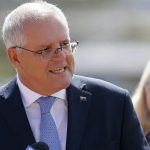Power politics threatens global cooperation to combat COVID-19

The lack of a coordinated global response to the COVID-19 pandemic is partly because many of the most capable states have been hit hardest and so focussed internally.
But the entrenchment of great power competition as a major feature of global politics is also playing a profound role. Smaller states must now step up to stabilise the global order.
Fuelled by rising nationalism and protectionism, the United States, China and Russia are attempting to shape the external environment to support their own strategic interests. But the pandemic is too large, pervasive and costly for any one of these powers to effectively manage on their own — it requires multilateral solutions.
The behaviour of these powers demonstrates their preference of self-interest over cooperation through international institutions. They view the pandemic not as a collective action challenge requiring the relaxation of strategic rivalry and tensions, but rather as a geopolitical battleground over power and position.
China’s early measures to contain the initial outbreak and dispatch aid earned praise, but this image of competency and benevolence has evaporated. An active disinformation campaign is emerging, aiming to deflect criticism that the regime covered up the initial outbreak and making incredulous assertions that the virus may have been a US bio-weapon or possibly originated in Italy.
China’s bilateral-based ‘mask diplomacy’ has also turned out to be disastrous, with multiple states reporting much of the equipment received is largely useless.
Relations are being particularly harmed with the European Union, where officials are increasingly vocal of the geopolitical underpinnings of China’s actions and the need to counter them. China’s efforts have strengthened relations with certain states, but these missteps call into question whether this will lead to a decisive geopolitical realignment towards China as the accepted new global leader.
While not taking the pandemic seriously at home, Russia is mobilising its disinformation capabilities to cast doubt on the origins of the virus and criticise Western approaches to it.
Russia was quick to deploy aid abroad, which also appears largely useless and more of a prop to feign the country’s capacity to respond. China and Russia are also continuing provocative military activities, indicating that they may try to take advantage of the world’s focus on the pandemic to further their geopolitical aims.
The ‘America First’ doctrine of the Trump administration in the United States is increasing antagonism with China and Russia as well as diminishing multilateral institutions and alliance relationships.
Attempts to decouple with China have resulted in the cessation of public health links and tariffs on Chinese made medical supplies — contributing to Washington’s poor anticipation of and preparations for the virus.
The lack of a G7 statement on COVID-19 demonstrates Washington is more concerned about blaming China for the outbreak than working with allies towards a solution.
Most worrisome is a complete abdication of US leadership, which historically has been vital in organising and mobilising global responses to other calamities. The Trump administration is singularly focussed on itself — most disturbingly evidenced by allegations it tried to buy exclusive patent rights for a vaccine being developed by a German company — and largely perceives the pandemic through zero-sum lenses.
These actions are producing haphazard bilateral aid responses, undermining confidence in the accuracy of state-based information sharing mechanisms and obstructing coordination and standardisation of medical supply chains and financial responses. These have been ineffective so far and will continue to be as the virus spreads in the Global South.
This lacklustre pandemic response is a product of structural changes occurring as global politics becomes increasingly fractured and leaderless.
In confronting the pandemic and its aftermath, secondary powers supportive of the current order — like Australia, Canada, the European states, Japan and South Korea — must increasingly work together in a far more substantive and organised way. This means moving beyond the hub-and-spoke relationship they have through the United States.
Where possible this should involve working through existing institutions — including attempts to facilitate temporary detentes between great powers — but it also requires working directly with one another to avoid great power obstructionism.
A recent example of this approach is the implementation of the Comprehensive and Progressive Agreement for Trans-Pacific Partnership (CPTTP).
There are three key goals of secondary power cooperation. They are to avoid zero-sum competition between states over medical supplies, counter the rise of disinformation about the pandemic and those who seek to benefit from it, and prepare aid and assistance packages to rehabilitate the global political economy post-COVID-19.
This will require additional resources, initiatives and leadership roles that these states are not accustomed to and at present appear unwilling to burden given their domestic crises — including the European Union. This must change.
Calls for the re-emergence of US leadership are futile, Russia remains a threat looking to exploit and further divide the West, and China appears more interested in attempting to restructure the post-pandemic world in line with its own hegemonic aims than actually combatting it effectively.
It is questionable whether and to what degree secondary powers can ensure the long-term survival of the global order in the absence of a hegemon, and insulate it from the excesses of great power competition. Yet this seems to be the only plausible alternative in this pandemic to the status-quo.
This article was published by The East Asia Forum.
Adam P MacDonald is a PhD candidate in the Political Science Department and Deputy-Director of the Centre for the Study of Security and Development at Dalhousie University, Halifax, Canada.











